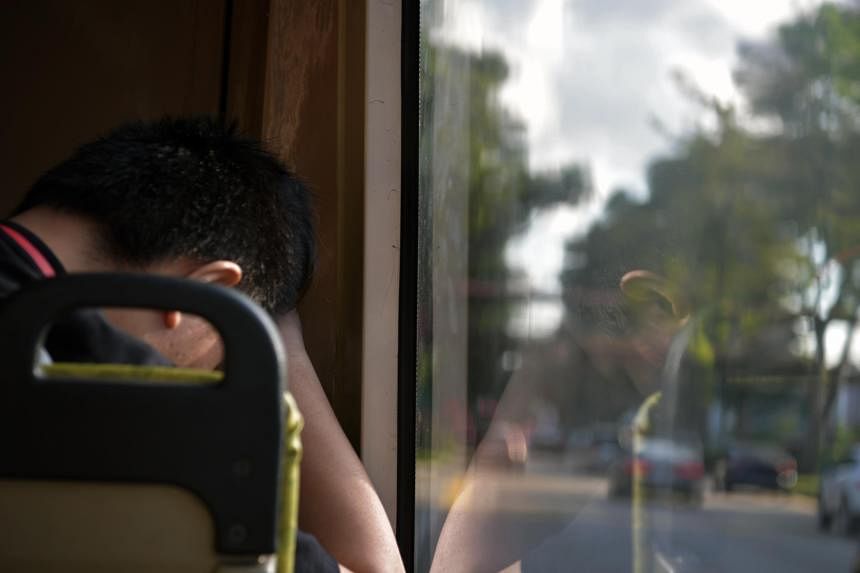SINGAPORE - Mental health lies on a spectrum, and not everyone dealing with these health challenges needs to rush to the hospital or see a specialist.
This is why a tiered-care model is being developed to help improve access to mental health support and, hopefully in the process, overcome stigma. This was highlighted during a debate on the parliamentary motion on advancing mental health on Feb 7.
The model aims to tailor care for individuals based on the severity of their symptoms. There will be four levels of mental health support, ranging from mental health promotion, self-help and peer support at Tier 1, to the most intensive level of care in hospitals and specialist clinics at Tier 4.
Improving mental health is not just about hiring more psychiatrists or building more capacity at the Institute of Mental Health (IMH), said Deputy Prime Minister Lawrence Wong in Parliament.
“We certainly will do that. But we also need to strengthen capabilities across our entire spectrum of care, including at our polyclinics and GPs, and also across other settings like schools, workplaces and in the community, so that more timely support can be rendered to those in need,” he said.
The first line of defence is being built up, with a goal to train more than 130,000 front-line personnel and volunteers by 2030 to identify mental health needs, provide basic support to individuals in need, and refer them for help if needed, said Senior Minister of State for Health Janil Puthucheary.
More than 48,000 front-line personnel, including school teachers and officers from various agencies such as the Singapore Police Force, Housing Board and Family Service Centres, as well as 54,000 volunteers, have already been trained.
At the same time, training to develop more peer supporters in schools and workplaces will be built up, and more teacher-counsellors will be deployed in schools, among other initiatives.
Already, plans are in place to get all polyclinics and all 1,350 Healthier SG general practitioner (GP) clinics to provide mental health services by 2030.
There will also be a total of 140 community mental health teams by then, comprising 90 outreach teams and 50 intervention teams. Currently, there are 73 and 29 of these teams respectively.
As the Government steps up capability-building efforts, a substantial pool of peer supporters and service providers across Tiers 1 to 3 would have the necessary baseline competencies to support individuals with mental health needs over the next two years, said Dr Janil.
At the same time, intensive care in Tier 4 is being strengthened, as the Government aims to increase the number of psychiatrists by about 30 per cent to 260, and the number of psychologists by about 40 per cent to 300, in the public sector by 2030, said Senior Parliamentary Secretary for Health Rahayu Mahzam. As at 2022, there were 203 registered psychiatrists and 212 psychologists in the public sector here.
This will be in line with the expansion of inpatient psychiatric bed capacity at IMH and other public hospitals. At present, there are almost 1,000 acute psychiatric beds in public hospitals, with more than 800 beds at IMH.
By 2030, there will be about 1,070 acute psychiatric beds, with about 70 beds added in the redeveloped Alexandra Hospital.
Importantly, a new National Mental Health hotline and text service will be set up by 2025 that will connect callers and those who send texts with the most appropriate support or services to meet their needs, said Mr Eric Chua, Senior Parliamentary Secretary for Culture, Community and Youth and Social and Family Development.
For example, calls and texts from people with no or minimal mental health needs and who want to learn well-being skills can be referred to well-being circles in the community, while those with suicidal tendencies may be connected to the Samaritans of Singapore’s hotline and contacts for support, he said.
He also said the aim is to launch a practice guide that translates the core concepts of the tiered-care model into practical steps, to help practitioners effectively apply the tiered approach, by the end of 2024.
Minister of State for Manpower Gan Siow Huang spoke about how workplaces can support the mental well-being of employees, with various initiatives to be launched, such as iWorkHealth Lite, a quick dipstick survey for companies to gauge their employees’ work stress and burnout.
Employees should be treated fairly and based on merit even if they have chosen to disclose their mental health conditions, she stressed.
In closing the debate, Dr Wan Rizal (Jalan Besar GRC) said the national mental health and well-being strategy that has been laid out is just the beginning.
“It’s a promise of action, a road map towards a future where every Singaporean knows they are not alone in their struggle.”
DPM Wong said the Government is fully committed to doing more to improve mental health and well-being. But for the plans to work, attitudes and mindsets need to change.
Mental health conditions need to be destigmatised, so that people do not hesitate to seek help, and what is considered success also needs to change.
DPM Wong, who called on all Singaporeans to join the national mental health movement, also said that mindsets need to shift.
“It’s good to have a culture in Singapore that values hard work, promotes excellence, and encourages everyone to aspire and strive to be better,” he said.
“But we should not be unwittingly drawn into a rat race of hyper-competition and endless comparisons with one another, just to get ahead of others, but end up worse off as a society.”


